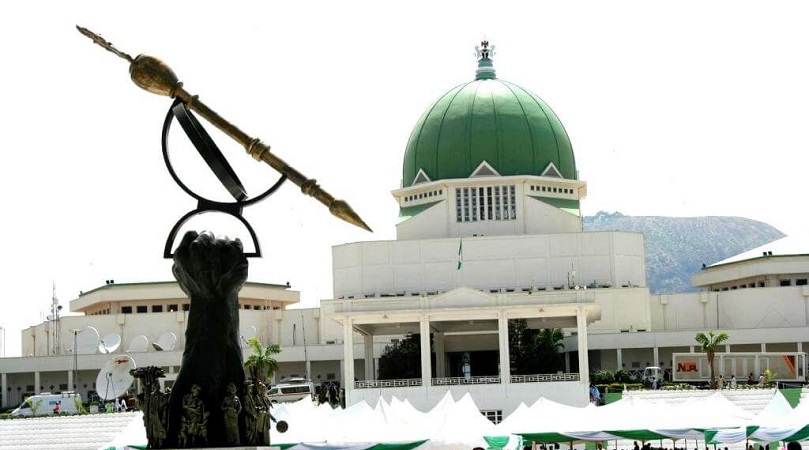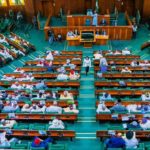Long gone are the days when purely financial factors were supposed to be the only consideration in government economic policies.
These days, it’s all about socio-economics, which involves conceptualising policies that ensure society remains peaceful and progresses, rather than stagnates or regresses.
The decline in Nigeria’s fortunes over the years is a clear indication that successive governments have failed to conceptualise or implement appropriate socio-economic policies, which would have led to economic growth and social contentment. It says a lot that twenty years after the return to democracy, and in the days leading up to “celebrating” the 60th year of independence, the Trade Unions Congress (TUC) and Nigeria Labour Congress (NLC) along with 80 workers unions and civil society groups under the umbrella of Alliance on Surviving COVID-19 and Beyond (ASCAB) are scheduled to hold nationwide protests over “anti-people” economic policies. Increasing numbers are suffering the ill-effects of government’s economic policies, and questions are rightfully being asked as to why the “national interest” always involves inflicting hardships upon ordinary citizens while political leaders insulate themselves at public expense?
Even as thousands have lost and are still losing their jobs, the government is rolling out policies, which further impoverish citizens rather than increasing palliative. The withdrawal of subsidy from petroleum marketers has increased fuel prices by approximately 15% overnight. It’s inexcusable that after five years in office, the All Progressives Congress (APC) led government hasn’t managed to repair or build a single refinery and are instead burdening citizens with the cost of their failure to do the right thing! It’s difficult to see how this is compatible with any claim to be trying to lift Nigerians out of poverty.
It’s a well-known fact that increasing fuel price is the most poverty inducing economic policy, yet this increase is being implemented at a time when many companies are massively retrenching staff, increasing numbers are owed salaries, gratuities or pensions and the majority are struggling to satisfy their most basic needs. It also comes at a time when electricity tariff, Cable TV rates, GSM call rates, and air transport fares have increased. The increased electricity tariff effective 1st Sept 2020 is predictably creating widespread resentment. It’s been condemned as being “totally inappropriate” at a time when the nation’s manufacturing sector is comatose due in large part to the high cost of energy, and personal incomes have been seriously affected by weeks of government ordered COVID-19 lockdown.
Some misguided analysts are using global comparatives to justify this increase in the pains of living in Nigeria. They irrationally compare fuel and electricity prices in developed nations with the local price, conveniently forgetting to take into account the minimum wage in those nations. Rather than call government’s economic policies “wicked” like the Peoples Democratic Party (PDP) spokesperson and human rights activists have done, it serves a better purpose to grasp that they are simply reacting to events and don’t really have any people-oriented proactive economic policy.
These days, Nigeria is being described as “a nation on autopilot” with no coherent, generally accepted socio-economic plan as to how to ensure peace and progress. Supporters of the various price increases say they are good because the federal government will get more money. The problem is that much of what the government does with money these days is wasteful and unimpressive. The constant purchase of fleets of new cars, renovation of government buildings, junketing, white elephant projects and indefensible personal “entitlements” of political office holders not only annoy long-suffering Nigerians, but also supports the assertion that government doesn’t actually need more money, they simply need to be more prudent in the manner in which they spend it.
In Western democracies, government’s response to the COVID-19 economic downturn was to bail out citizens by packaging relief plans such as cash transfers, food banks, moratorium on rent payments and other interventions. These palliatives were targeted at employers, to prevent them from retrenching staff, and employees who had lost their jobs because businesses closed due to COVID-10 pandemic. In Nigeria, the government’s response was to supposedly spend hundreds of millions on a questionable school feeding programme carried out at a time they had ordered schools to be closed! They also purportedly doled out billions in cash to unidentified, nameless recipients!
Nigerian political leaders are regarded worldwide as locusts with neither aptitude for the job nor concern for the plight of citizens, who concentrate on misappropriating national wealth and enjoying it in other lands. While the economy continues crumbling they cushion themselves, family and friends, financially with public funds, while citizens learn how to survive their continuously deteriorating circumstances or increasingly commit suicide. According to late British Prime Minister, Margaret Thatcher, if you push a Nigerian to the wall, rather than face you, he will struggle to break through the wall and continue running! Be that as it may, there is no denying widespread rightful indignation at those economic policies, which contradict claims APC leaders made when in opposition which garnered them support back then.
They claimed it would take only six months to fix power. Five years later the system is worse than ever and citizens are being forced into paying more for less electricity! They claimed that the fuel subsidy was a treasury looting scam. Five years later they announced that they are removing the very same subsidy! They claimed they have a plan to lift 100 million Nigerians out of poverty, but the unavoidable inflationary side effects of fuel and electricity price increases will ensure that Nigeria continues to occupy a prominent position in the world poverty rankings.
The government’s attempts to articulate exactly how they intend to alleviate poverty, habitually contain phrases such as “plans are in the pipeline”; which suggests an absence of tangible strategy. Successful democracy isn’t simply about holding elections. It’s also about ensuring peace and avoiding confrontation through consultations. The government must de-escalate the situation by consulting with various interest groups. There’s no denying that inappropriate, economic policies imposed without consultation have routinely favoured the few, while further impoverishing the majority who are weary of constantly being asked to increase their suffering in the “national interest”.




